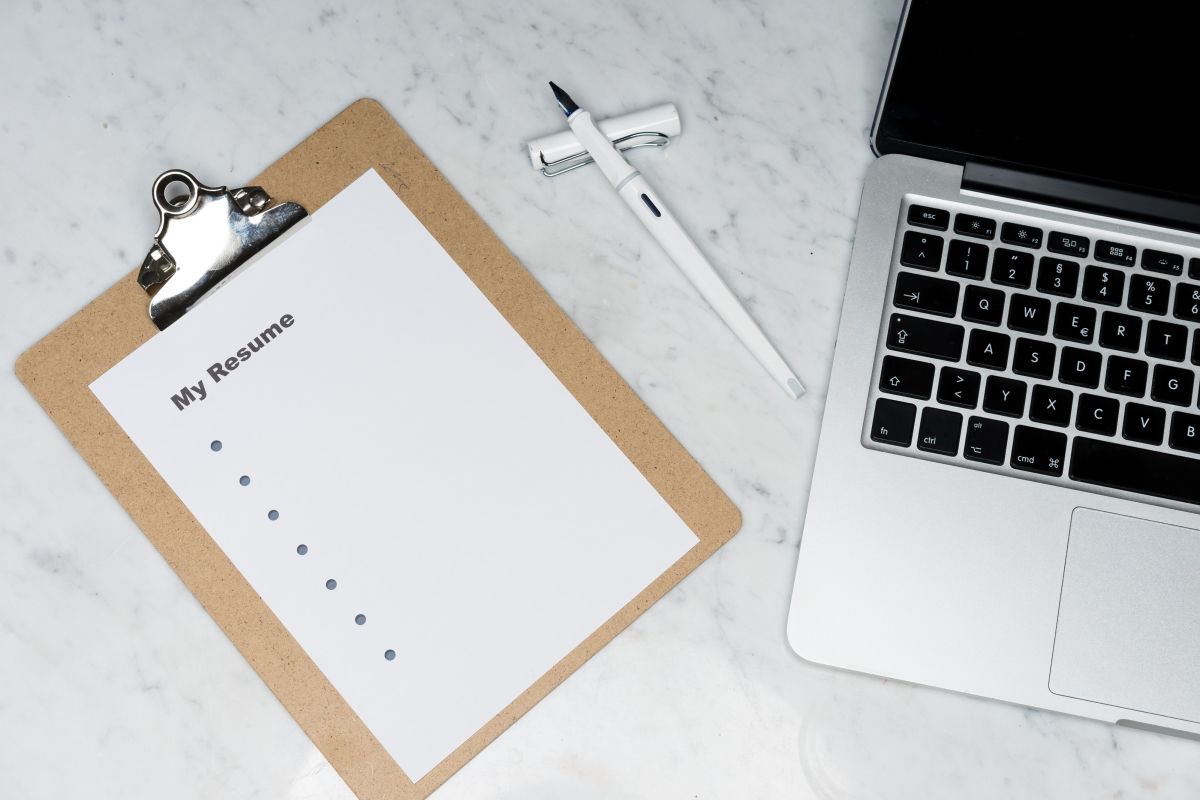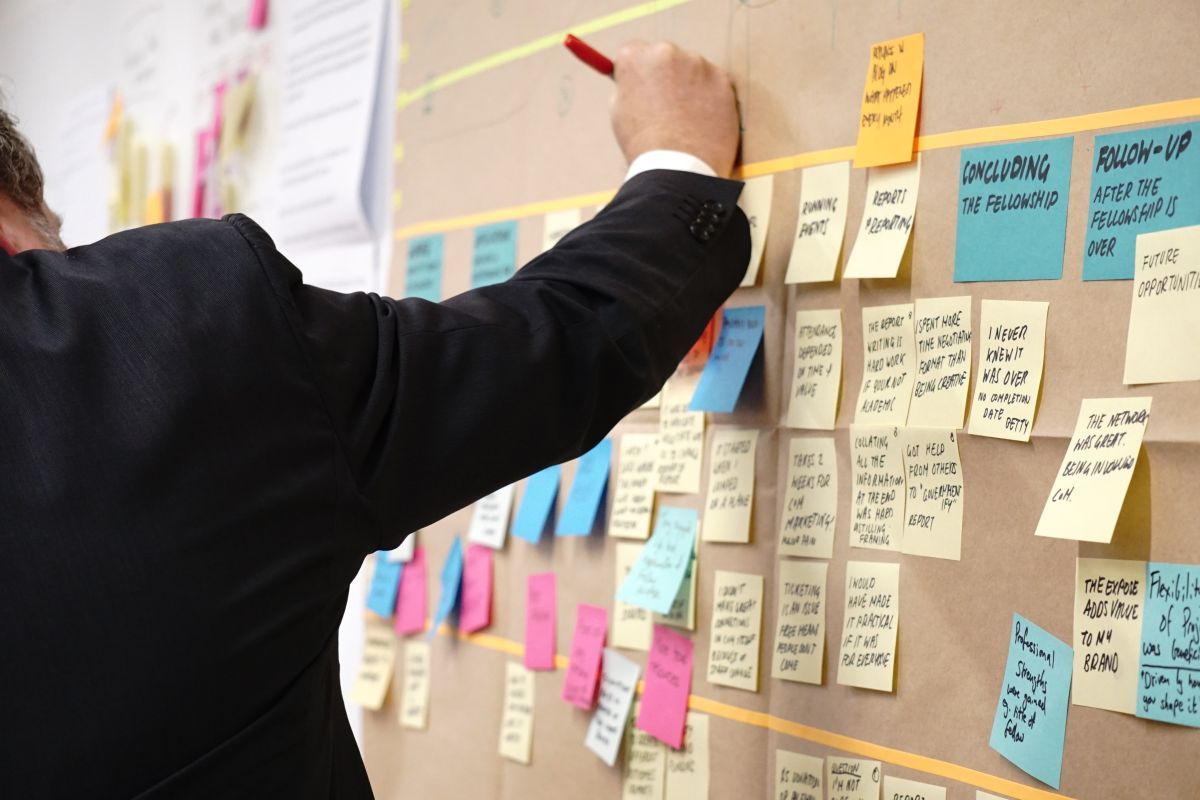Are you feeling a little overwhelmed by the thought of writing an official letter? Don't worry, you're not alone! Crafting a professional and effective letter can seem like a daunting task, but fear not—I'm here to help.
In this blog, we'll dive into some valuable tips and tricks that will empower you to write official letters with confidence and finesse.
Whether you're a job seeker, a working professional, or someone who simply wants to enhance their business communication skills, this guide is for you.
From formatting and tone to addressing the recipient and structuring your content, we'll cover it all.
Get ready to unlock the secrets of writing impeccable official letters that leave a lasting impression!
Why do you need to write an official letter?
Writing an official letter is important because it promotes professionalism, ensures clear and effective communication, serves as legal documentation, and helps maintain a positive image and reputation in the professional world.
By following the conventions of official letter writing, individuals can effectively convey their message while adhering to established norms and expectations.
Professional Communication
Official letters serve as a formal means of communication in the professional world.
They provide a structured format for conveying important information, making requests, or expressing concerns.
By using official letters, individuals can maintain professionalism and ensure their message is communicated clearly and effectively.
Legal Documentation
Official letters often serve as legal documentation of communication between parties.
They can be used as evidence in disputes or as a record of agreements, contracts, or official notifications.
Having a written record can help protect the interests of both individuals and organizations involved.
Clarity and Precision
Writing an official letter requires careful thought and organization. It forces the writer to articulate their message clearly, concisely, and in a structured manner.
This clarity and precision help prevent misunderstandings, ensure that the intended message is conveyed accurately, and reduce the chances of miscommunication.
Professional Image
When writing an official letter, individuals have an opportunity to present themselves or their organization in a professional manner.
A well-written letter demonstrates attention to detail, competence, and respect for the recipient.
It enhances the overall image and reputation of the sender, leaving a positive impression on the reader.
Formality and Respect
Official letters adhere to a set of formal conventions, including proper salutations, professional language, and appropriate tones.
This formality and respect are essential when communicating with superiors, colleagues, or clients.
It shows that the sender values the recipient's time, understands professional norms, and is willing to engage in a courteous and respectful manner.
Documentation of Business Transactions
Official letters are commonly used for documenting various business transactions such as job offers, contract proposals, purchase orders, and more.
Having written documentation provides a clear record of the terms and conditions agreed upon by both parties, reducing the risk of misunderstandings or disputes in the future.
Professional Etiquette
Writing official letters demonstrates adherence to professional etiquette and business norms.
It shows that the writer understands the importance of formal communication channels and is willing to invest time and effort in presenting information in a manner that is appropriate for the context.
Following established protocols helps build and maintain professional relationships.
Structure and Organization
Official letters follow a specific format, which provides a clear structure for conveying information. This structure helps organize thoughts and ensures that all relevant details are included.
It also makes it easier for the recipient to read, understand, and respond to the letter, as they can quickly locate specific sections or information.
Effective Follow-up
Official letters are an effective tool for follow-up communication.
Whether it's a thank-you letter, a response to a request, or an update on a project, using an official letter format helps maintain professionalism and keeps communication organized.
It ensures that all necessary information is conveyed and allows for easy reference in the future.
Standardization
Official letters provide a standardized and widely accepted format for communication. This standardization helps streamline communication processes and ensures consistency across different organizations and industries.
It enables clear expectations regarding how information is presented, making it easier for recipients to understand and respond to the letter.
Tips on how to write an official letter
Use a formal tone
When writing an official letter for a job application, it's crucial to maintain a professional and respectful tone. Use formal language and avoid slang, abbreviations, or informal expressions.
Remember that you are representing yourself as a potential candidate for a professional position, so create a positive impression through your writing.
Instead of writing, "Hey there! I'm super interested in the job. Hit me up if you think I'd be a good fit," you should write,
"Dear Hiring Manager, I am writing to express my strong interest in the [position] at [company]. I believe my skills and qualifications make me an ideal candidate for the role."
Follow the correct format
Using a standard business letter format helps create a polished and organized document.
The format typically includes your name, title, company address, date, recipient's name, title, and address, salutation, body paragraphs, closing, and signature.
Adhering to this format ensures that your letter appears professional and is easy for the recipient to navigate.
For example: Your Name Your Address City, State, ZIP Code, Email Address, Phone Number and Date.
Recipient's Name Recipient's Job Title Company Name Company Address City, State, ZIP Code
Dear [Recipient's Name],
[Body of the letter]
Sincerely,
[Your Full Name]
[Your Contact Information]
Keep it concise
Recruiters and hiring managers often receive numerous applications, so be clear and concise in your writing. Avoid lengthy paragraphs and unnecessary details.
Focus on highlighting your relevant qualifications, experiences, and why you are interested in the position. Keep the letter to one page if possible.
So, instead of writing long paragraphs that go into unnecessary detail about every job you've ever had, focus on key accomplishments and qualifications that directly relate to the position you're applying for.
Use bullet points or concise sentences to present your qualifications in a clear and easy-to-read format.
Use a professional font and format
To ensure readability and maintain a professional appearance, choose a standard font like Arial or Times New Roman in a 12-point size.
Align your text to the left and use single-spacing within paragraphs.
Use appropriate headings and subheadings to organize your content.
Maintain consistency in font and formatting throughout your letter. Use bold or italic formatting sparingly and only for emphasis.
Headings and subheadings can help structure your letter and make it easier for the reader to navigate.
Use clear and specific language
When writing an official letter for a job application, it's important to be clear and specific about your intentions, qualifications, and experiences.
Clearly state the purpose of your letter in the opening paragraph and tailor your content to the specific job requirements.
Use action verbs and provide concrete examples to demonstrate your skills and accomplishments.
For example, in the opening paragraph, clearly state the position you are applying for and briefly mention why you are interested in the role and the company.
Use specific examples from your previous experiences to showcase relevant skills and accomplishments. For example, instead of saying, "I have strong leadership skills," you can write,
> "In my previous role as team lead, I successfully managed a cross-functional team of 10 individuals, resulting in a 20% increase in productivity."
Proofread for errors
Before submitting your job application letter, take the time to proofread it carefully. Check for spelling mistakes, grammar errors, and ensure the formatting is consistent.
Typos and errors can create a negative impression and detract from the overall quality of your application.
Use proofreading tools like spell check and grammar check to catch any obvious errors.
However, don't solely rely on these tools; manually read through your letter to catch any mistakes they might have missed.
Pay attention to punctuation, sentence structure, and the overall flow of your writing.
Maintain a polite and respectful tone
Maintain a polite and respectful tone, even if you're addressing difficult issues or expressing concerns.
Avoid using aggressive or confrontational language. It's essential to create a positive and professional impression.
Choose your words carefully and avoid sounding demanding or entitled. Express your thoughts and concerns in a respectful and constructive manner.
If you have any questions or concerns about the application process or the position, frame them in a polite and professional way.
Be mindful of cultural differences
When applying for a job internationally or in a company with a diverse workforce, be aware of potential cultural differences in communication styles.
Adjust your tone and language accordingly to ensure that your letter is culturally sensitive and appropriate for the recipient.
Research the cultural norms and communication styles of the company or country you're applying to. Be mindful of differences in formality, greetings, and levels of directness.
Tailor your letter to match the cultural expectations of the recipient, demonstrating your awareness and adaptability.
Use proper salutations and closings
Begin your letter with a formal salutation, using the recipient's appropriate title and last name.
End your letter with a professional closing, followed by your full name and contact information. These elements provide a sense of formality and respect to your letter.
Use salutations such as "Dear Mr./Ms. [Last Name]," unless specifically instructed otherwise.
In your closing, use phrases like "Sincerely," "Best regards," or "Yours faithfully" followed by your full name and contact information. Double-check that you have provided accurate and up-to-date contact details.
Address any necessary follow-up actions
If your job application letter requires a response or specific actions from the recipient, clearly state that in the closing paragraph.
Provide contact information or details on how the recipient can reach you if needed. This demonstrates your proactive approach and helps facilitate further communication.
In the closing paragraph, express your interest in moving forward with the application process and mention your availability for interviews or any additional information the employer might require.
Provide your preferred contact methods, such as email or phone, and ensure that you are readily available to respond to any follow-up inquiries.
By following these tips, jobseekers can create a compelling and professional official letter for their job application, increasing their chances of making a positive impression on potential employers.
Official Letter Samples
Writing an official letter for a job application
Subject: Application for [Position Title]
Dear [Hiring Manager's Name],
I hope this email finds you well. I am writing to express my keen interest in the [Position Title] position at [Company Name]. With great enthusiasm, I am submitting my application for your consideration.
Having thoroughly researched [Company Name] and its esteemed reputation as a leader in [industry or field], I am impressed by the organization's commitment to [specific values, achievements, or initiatives]. The opportunity to contribute my skills and expertise to the success of your team is both exciting and inspiring.
I have attached my resume and cover letter for your review. With [number] years of experience in [relevant field or industry], I have developed a strong foundation in [key skills or qualifications].
Throughout my career, I have successfully [mention significant achievements, projects, or responsibilities] that have equipped me with the ability to [describe specific capabilities or contributions relevant to the desired position]. I am confident that my skills align well with the requirements of the [Position Title] role.
In my previous role as [Previous Position], I demonstrated strong [relevant skills] by [describe an accomplishment or initiative]. I am skilled in [mention relevant tools, technologies, or methodologies] and have a proven track record of [describe specific achievements or outcomes].
Additionally, I am a collaborative team player with excellent communication and problem-solving abilities, which I believe are crucial for success in the [Position Title] at [Company Name].
I am particularly drawn to [Company Name] because of its commitment to [specific aspects of the company, such as innovation, social impact, or industry leadership]. The opportunity to work alongside talented professionals and contribute to the organization's continued growth is incredibly appealing to me.
I would be grateful if you could review my application and consider me as a strong candidate for the [Position Title]. I am available for an interview at your convenience, either in person or via video conference. I believe that a meeting would provide an excellent opportunity for us to discuss how my skills and experience align with the needs of [Company Name].
Thank you for considering my application. I appreciate your time and attention to my candidacy. I look forward to the possibility of contributing to the success of [Company Name].
Please do not hesitate to contact me at [your email address] or [your phone number] if you require any additional information or documentation.
Sincerely,
[Your Full Name]
[Your Contact Information]
Writing an official letter asking about an update at work
Subject: Request for Update on Task
Dear [Recipient's Name],
I hope this email finds you well. I am writing to kindly request an update on the status of [specific task or project]. As we approach the anticipated completion date, I would greatly appreciate any information you can provide regarding its progress.
The [task/project] is significant to our [team/department/organization], and it plays a crucial role in [mention its impact on overall objectives, timelines, or deliverables].
Understanding its status will help us effectively plan and allocate resources, ensure alignment with other ongoing initiatives, and make any necessary adjustments if needed.
If possible, I kindly request that you provide an update on the following aspects:
1. Progress made thus far:
- Outline the key milestones achieved or completed tasks.
- Indicate any challenges encountered or unexpected issues that may have arisen.
2. Remaining tasks and timeline:
- Specify the remaining steps required to complete the task or project.
- Provide an estimated timeline for the remaining work, including any dependencies or factors that may affect the schedule.
3. Resources or support needed:
- If there are any specific resources, information, or support required to move the task/project forward, please let me know so that I can assist in facilitating those arrangements.
4. Potential risks or concerns:
If there are any risks, bottlenecks, or concerns that could impact the successful completion of the task/project, please highlight them along with any proposed mitigation strategies.
I understand that unforeseen circumstances or competing priorities may have arisen, leading to potential delays or challenges.
However, obtaining an update will help us effectively manage expectations, communicate progress to stakeholders, and take appropriate actions to ensure successful outcomes.
I kindly request that you provide the update by [mention a specific date or timeframe] so that we can adequately plan and address any potential issues proactively.
I appreciate your prompt attention to this matter and your ongoing commitment to the success of [task/project] and our collective objectives.
Should you require any additional information or clarification, please do not hesitate to reply to this email. I am available to discuss any concerns or questions you may have.
Thank you for your cooperation, and I look forward to receiving your update.
Sincerely,
[Your Full Name]
[Your Position]
[Your Contact Information]
Writing an official letter informing of an update
Subject: Update on [Project/Task/Initiative]
Dear [Recipient's Name],
I hope this email finds you well. I am writing to provide you with an important update regarding [Project/Task/Initiative]. As a key stakeholder in this endeavor, I believe it is crucial to keep you informed of the progress and recent developments.
I am pleased to share that significant milestones have been achieved since our last update. We have successfully [describe key accomplishments or progress made]. These achievements are a testament to the dedication and hard work of the entire team involved in this effort.
Additionally, I would like to highlight the following updates:
1. [Update 1]: Provide a concise summary of the first update, including any relevant details or outcomes.
2. [Update 2]: Share the second update, focusing on new developments, changes, or decisions made.
3. [Update 3]: Outline the third update, emphasizing any impactful information or upcoming steps.
The progress made so far puts us on track to meet our established goals and timelines.
However, it is important to note that certain challenges or considerations have emerged, such as [mention specific challenges or factors affecting the project]. We are actively working on addressing these challenges to ensure a successful outcome.
I would like to express my sincere appreciation for the dedication and contributions of everyone involved in this project. Your expertise and commitment have been instrumental in our progress thus far.
Moving forward, we will continue to closely monitor the project's status and proactively address any new developments or issues that arise. Regular updates will be provided to keep you informed and engaged throughout the process.
Should you have any questions, feedback, or concerns, please do not hesitate to reach out to me. Your input is invaluable in ensuring the success of this initiative.
Thank you for your continued support and collaboration. Together, we are making significant strides toward achieving our shared objectives.
I look forward to providing you with further updates as we move ahead.
Best regards,
[Your Full Name]
[Your Position]
[Your Contact Information]
Conclusion
We hope these tips could help solve your dilemma about how to write an official letter.
Remember, writing a compelling official letter doesn't have to be a daunting task.
With practice and attention to detail, you can create impactful letters that effectively convey your message and leave a positive impression.
So go ahead, put these tips into action, and watch your letter-writing prowess soar.
Whether you're applying for a job, communicating with colleagues, or reaching out to clients, you now have the tools to confidently tackle any official correspondence.
Happy writing!









